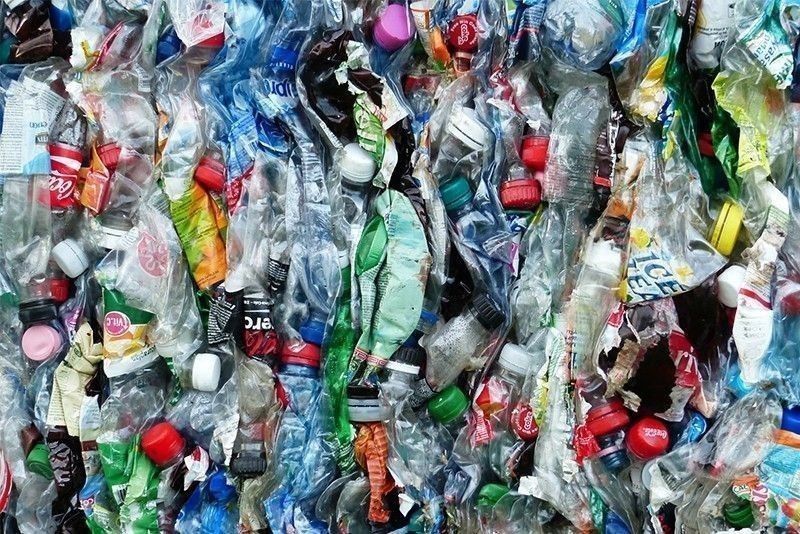Global societal cost of plastics placed at $3.7 trillion

MANILA, Philippines — The societal cost of plastics produced globally in 2019 was found to be $3.7 trillion, a recent report published by the conservation group World Wide Fund for Nature (WWF) noted.
The lifetime cost to society, the environment and the economy of plastics produced in 2019 alone has been revealed at $3.7 trillion, according to the “Cost of Plastics” report.
Ina Guingona, WWF-Philippines No Plastics in Nature policy officer, said, “The gigantic cost of plastics on society, environment and the economy is hard to comprehend even if we imagine it as being nearly 10 times the total GDP (gross domestic product) of the Philippines in 2019.”
She added, “Plastic pollution is more than just a littering problem and it is real, tangible – and as the report has shown – quantifiable cost to our society. And for countries like the Philippines, this is not an expense that we can afford to have.”
The biggest portion of the cost indicated in the report is marine plastic pollution estimated at $3.1 trillion. Greenhouse gas emissions from across the plastic lifecycle amounts to more than $171 billion, while the management of plastic waste costs more than $32 billion, to collect, sort, dispose and recycle the huge quantities of plastic waste generated in 2019.
“Plastic takes hundreds to thousands of years to fully degrade and as it degrades, it breaks down into smaller and smaller particles, making it hard to recover and remove plastic from the environment,” the report said.
“Plastic will therefore remain in the environment to incur further costs. It is estimated that the plastic produced in 2019 that becomes marine plastic pollution will incur a cost of $3.1 trillion over its lifetime,” it added.
Unless action is taken, these costs are set to double for the plastics produced in 2040 at $7.1 trillion, equivalent to 85 percent of global spending on health in 2018 and greater than the GDP of Germany, Canada and Australia in 2019 combined.
The report demonstrates that governments and citizens are unknowingly subsidizing a plastic system that is imposing countless negative impacts on people and the environment.
The report “Plastics: The cost to society, environment and the economy” highlights how fragmented regulatory approaches, misplaced incentives as well as lack of coordinated technical resources, financial support and consistent data on plastic leakage are currently costing us the Earth.
“Failure to understand and remediate the real costs of plastic will cost even more in the future, as under a business-as-usual scenario it is estimated that by 2040 there will be a doubling of plastic production and a tripling of plastic pollution entering the ocean to 29 million tonnes, increasing the total stock of plastic in the ocean to 600 million tonnes,” Guingona said.
To address this crisis on a systemic level and reduce the costs that plastic imposes on society, WWF is calling on governments to start the negotiation of a legally binding global treaty on marine plastic pollution at the fifth session of the UN (United Nations) Environment Assembly in February 2022.
Marco Lambertini, director general of WWF International, said, “This is the first time we have seen such a clear assessment of some of the unaccounted costs being imposed by plastic pollution on society and they are a burden that is too high to bear – both for people and the environment.”
“Tragically, the plastic pollution crisis is showing no signs of slowing down, but the commitment to tackle it has reached an unprecedented level. We need a UN treaty on plastic pollution that unites governments, companies and consumers around clear targets for reduction, collection, recycling and sustainable alternatives to stop plastic leakage into the environment by 2030,” he added.
In the Philippines, WWF is calling for the enactment of House Bill 9147 or the Single-Use Plastic Products Regulation Act which was passed at the House of Representatives on third reading last July 28, 2021.
The bill includes the Extended Producer Responsibility scheme that holds plastic producers accountable for the plastic packaging they put into the market throughout the whole life cycle of the product.
Limit temperature rise
Meanwhile, with extreme weather events increasingly impacting countries across the world, the UN underlined the importance of limiting temperature rise to the internationally agreed goal of 1.5 degrees Celsius above pre-industrial levels.
“The entire planet is going through a season of fire and floods,” UN deputy secretary-general Amina Mohammed told a high-level meeting on climate action, primarily hurting fragile and vulnerable populations in rich and poor countries alike.
Speaking ahead of COP26, the annual UN climate conference which will take place in Glasgow in November, the deputy UN chief noted already-visible impacts with a 1.2-degree rise.
“Countries and populations worldwide – particularly those most vulnerable and least responsible for the climate crisis – will experience even more devastating consequences,” she said.
“The effects will reverberate through economies, communities and ecosystems, erasing development gains, deepening poverty, increasing migration and exacerbating tensions.”
With “bold and decisive steps” towards a net-zero global economy by 2050, Mohammed said the world could still limit global warming to within 1.5 degrees.
“Acting now is a question of climate justice. And we have the solutions,” she added.
While a “massively scaled-up investment” in adaptation and resilience is “critical” for those at the frontlines of the climate crisis, she informed the meeting that to date, only 21 percent of climate finance is channelled to adaptation efforts.
“Of the $70 billion that developing countries need now to adapt, only a fraction is being provided,” the deputy UN chief stated, adding that adaptation costs to the developing world could rise to as much as $300 billion a year by 2030. – Pia Lee-Brago
- Latest
- Trending



























